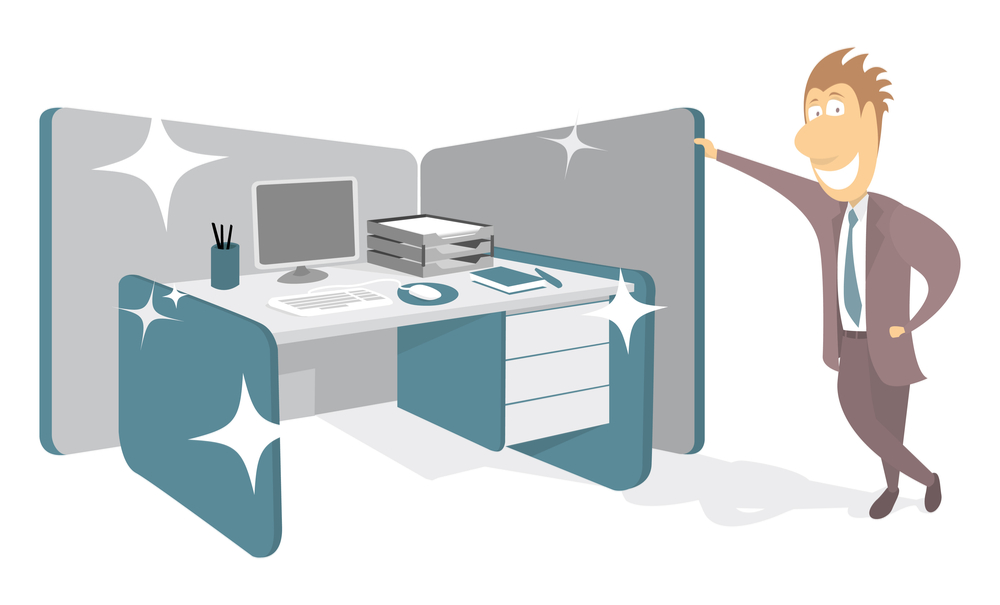Establishing a Clean Desk Policy
Over the years, there have been different arguments made for and against a clean desk policy in the workplace. Some people say it stifles creativity, and de-personalises the workplace. Others say it conveys an air of competence to outsiders, and helps make employees feel more organised. But the most important reason today for a clean desk policy is information security – and there’s no argument there.

Why put a clean desk policy in place?
- Help protect your practice, your patients and your reputation. Most businesses require confidentiality, and everyone in the practice handles documents that contain important and often confidential information. That means everyone in your practice must protect documents and data from unauthorised access, internally and from outsiders. Maintaining a clean desk policy reduces this risk.
- Encourage better organisation and productivity for your employees and provide peace of mind for your patients. When everyone’s desk is clean, and all areas of the practice are free from paper and clutter, your office space looks attractive, professional and efficient. Employees feel more in control in a well-organised environment and your patients will be left with a good impression of your practice.
Steps to creating your clean desk policy
In order to promote a clean desk policy, we recommend you teach the three “P”s of office
organisation and follow these yourself to set the best example:
- PLAN first thing in the morning. Keep just the things you need for your workday on your desk. Start each day with a few minutes of planning so that you can organise the documents you need for immediate work. File all other folders and documents.
- PROTECT information whenever you leave your desk. You obviously have to leave your desk to attend meetings or to take breaks. But whenever you do, make a quick check to see if there is sensitive information on your desk and place it inside a folder or off your desktop. And for additional security, make sure to switch on your computer’s password-protected screen saver.
- PICK UP at the end of the day. When you leave your desk in the evening, don’t leave documents on it. In order to maintain the security of both your patient and employee information, it’s essential to file your documents or lock them up, if necessary. If you get into the habit of clearing your desktop every day before you leave, you’ll enjoy the added productivity benefits that come with a clean office first thing in the morning.
How to implement a clean desk policy
- Put it in writing. You’ll want to communicate to all employees how to follow the policy, and why it’s important. In addition, you’ll want to specify what the consequences will be if anyone fails to comply with the policy — especially if your organisation works with highly sensitive information.
- Start at the top. Your policy has to be taken seriously, especially by your senior management. If managers don’t follow the policy, why should the rest of your employees? So make sure to get agreement from your senior managers to both follow and advocate the policy to everyone.
- Add a reminder to your email signatures. If your organisation uses a standardised email signature, it makes sense to also include this reminder at the end of each signature: Please consider the environment before printing this email. Not only will this cut paper use, waste and clutter, it will also reduce expense and help to safeguard important information from getting into the wrong hands.
- Provide lockable storage. You simply can’t have a clean desk policy in the workplace if your employees have nowhere to temporarily store their sensitive documents. Consider purchasing small, lockable storage boxes for employees that can fit under their desks.
- Encourage electronic vs. paper documents. We all know there’s lots of unnecessary printing in every office. If your employees work with more electronic documents, everyone will maintain a cleaner desk and there will be less paper clutter.
- Make backups routine. If you discourage employees from using paper documents, make sure your organisation has a dependable backup system and routine in place. You’ll want to be sure everyone’s documents are safe in case power goes down or employee hard-drives crash.
How to enforce your clean desk policy
- Display reminders in appropriate areas. You can post signs in key areas of the office or create and use reminder cards to prompt each employee to follow the policy. It’s especially important for employees to clean off their desktops at the end of the day.
- Appoint one or more employees to monitor office areas. They should do a quick audit to make sure your employees are following your new policy — no papers, notes, Post-its or any other documents containing sensitive information should be left on desks. Once everyone gets into the routine, you may be able to do random versus daily checks.
It is important not to mistakenly dispose of sensitive documents in an unsecure waste bin. The safest and most environmentally friendly way to ensure the protection of sensitive information is to place all unneeded documents in a secure Shred-it console before you leave for the day.
To find out more about Shred-it’s regular and ad-hoc document destruction services, visit their supplier page.
Community Quicklinks
- Introduction
- Additional Member Services
- Advice for Members
- Loss of vaccines – Prevention and what to do in order to claim
- Business as (un)usual – Getting back to normal after a serious incident
- PRS & PPL Licensing – what it means and how to avoid it
- Establishing a Clean Desk Policy
- Protect your future by insuring your past
- Income Protection and Business Overheads Insurance
- What's the right cover for you?
- Are your Ergonomics right? How to improve the way you work





